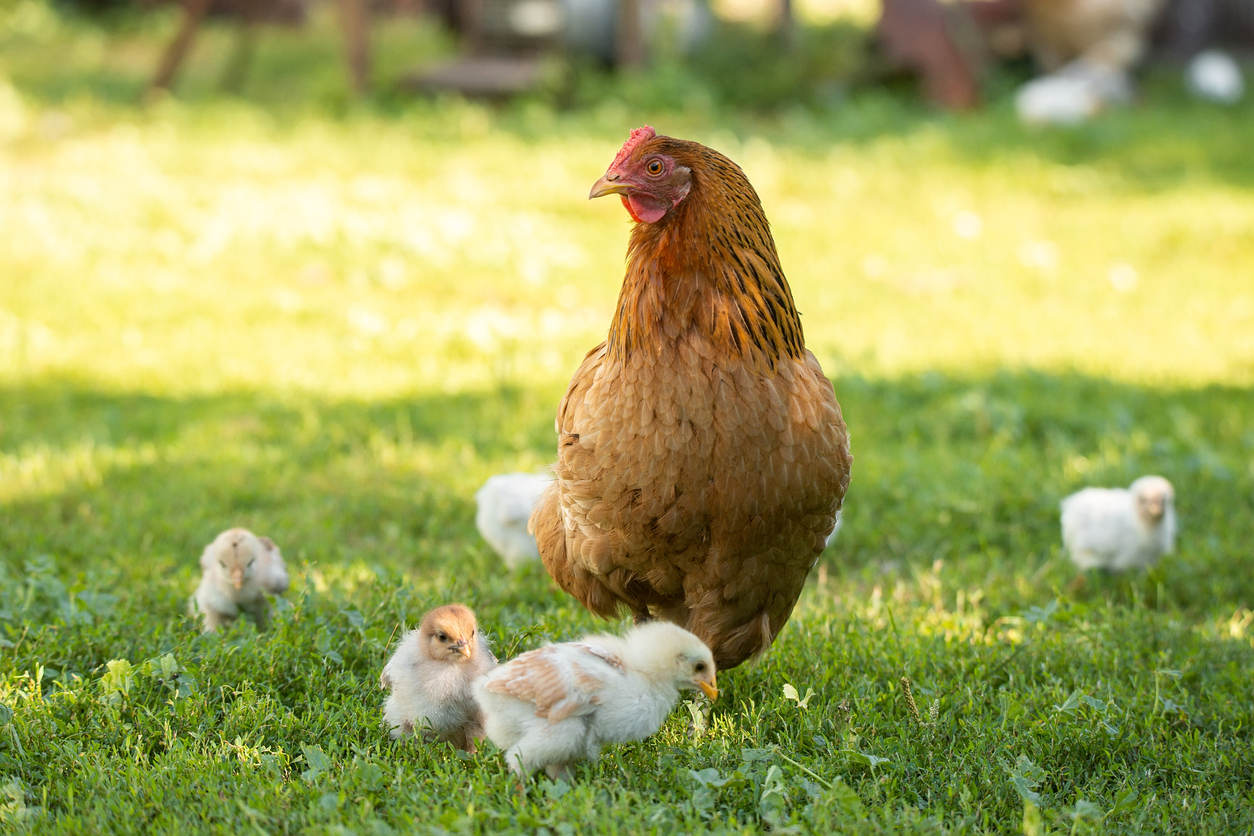Benefits and Challenges of Raising Poultry in Nigeria: Insights from Wigmore Trading
Benefits and Challenges of Raising Poultry in Nigeria: Insights from Wigmore Trading
Are you looking to venture into the world of poultry farming in Nigeria? Or perhaps you’re already a seasoned farmer seeking ways to enhance your operations. Look no further! In this blog post, we’ll dive deep into the benefits and challenges of raising poultry in Nigeria, with exclusive insights from Wigmore Trading – a leading supplier of quality agricultural products. Get ready to unravel the secrets behind successful poultry farming and discover how Wigmore Trading can help you overcome any obstacles along the way. Let’s embark on this exciting journey together!
Introduction to Wigmore Trading and their impact on poultry farming in Nigeria
Introduction to Wigmore Trading and their Impact on Poultry Farming in Nigeria
Wigmore Trading is a leading agribusiness company based in Nigeria, specializing in the importation, distribution, and marketing of high-quality agricultural products. With over 25 years of experience in the industry, Wigmore Trading has become a trusted name among local farmers and businesses.
In recent years, Wigmore Trading has made significant strides in the poultry farming sector in Nigeria. The company’s dedication to promoting modern and sustainable farming practices has had a significant impact on the country’s poultry industry. In this section, we will delve deeper into how Wigmore Trading has contributed to the growth and development of poultry farming in Nigeria.
One of the key areas where Wigmore Trading has made a significant impact is through its supply chain network. The company works closely with local farmers and suppliers to source high-quality feed ingredients, equipment, and other necessary materials for poultry production. By providing these essential resources at competitive prices, Wigmore Trading has helped Nigerian farmers improve their productivity levels while keeping costs low.
Moreover, Wigmore Trading also offers expert advice and training programs to help farmers adopt best practices for raising healthy chickens. This includes guidance on proper nutrition, disease prevention measures, and efficient management techniques. Through these initiatives, they have empowered countless small-scale poultry farmers across the country to achieve higher yields and increase their income levels.
The company’s commitment to improving animal welfare standards cannot be overstated either. They work closely with international organizations such as World Animal Protection (WAP) to promote ethical practices within the livestock industry. As a result, many Nigerian farms have transitioned from traditional open-air systems to more humane methods that provide better living conditions for animals.
In addition to supporting individual farmers’ growth, Wigmore Trading also plays a crucial role in stimulating economic development at a national level. Their investments have created employment opportunities throughout their supply chain network – from transporters and distributors to local retailers. This has had a positive ripple effect on the economy, providing an economic boost to rural communities.
Wigmore Trading’s dedication to promoting sustainable and modern farming practices has made a significant impact on the poultry industry in Nigeria. Through their supply chain network, training programs, and support for animal welfare, they have helped countless farmers improve their livelihoods while contributing to the country’s economic growth.
The benefits of raising poultry in Nigeria:
The poultry industry in Nigeria is one of the fastest-growing sectors, with a significant contribution to the country’s economy and food security. Raising poultry has become a popular practice for many small-scale farmers in Nigeria, as it offers various benefits that contribute to their livelihoods and overall well-being.
One of the primary benefits of raising poultry in Nigeria is its potential for high profitability. The demand for poultry products such as eggs and meat continues to rise due to population growth, urbanization, and changing dietary preferences. This presents an excellent opportunity for farmers to invest in poultry farming and generate a steady income stream. Moreover, poultry farming requires minimal start-up capital compared to other agricultural ventures, making it accessible for small-scale farmers.
Another advantage of raising poultry in Nigeria is its low input costs. Poultry birds are relatively easy and inexpensive to maintain compared to other livestock animals like cattle or pigs. They require less land space and feed than larger animals, making them suitable for small-scale production systems. Additionally, they have a faster growth rate and shorter production cycle, meaning that farmers can quickly turn around their investments within a shorter period.
In addition to financial benefits, raising poultry also has positive social impacts on rural communities in Nigeria. Many households in rural areas rely on backyard chicken rearing as a source of nutrition and income generation. With proper training and support from organizations like Wigmore Trading Ltd., these households can improve their production techniques and increase their productivity levels significantly. This not only improves their quality of life but also contributes positively towards alleviating poverty in local communities.
Furthermore, raising poultry has environmental benefits as well. Poultry droppings are an excellent source of organic fertilizer that can be used by crop farmers to enhance soil fertility. This reduces the reliance on chemical fertilizers that can harm the environment when improperly disposed of or overused.
The diversity offered by different types of poultry makes it an attractive venture for Nigerian farmers. Depending on their production goals and resources, farmers can choose to raise broilers, layers, or indigenous breeds such as local chickens or guinea fowl. This diversity allows for flexibility in production systems and caters to different market demands.
Raising poultry in Nigeria offers numerous benefits ranging from financial gains to social and environmental impacts. With the right knowledge, resources, and support from organizations like Wigmore Trading Ltd., Nigerian farmers can take advantage of these benefits and contribute towards a thriving poultry industry in the country.
– Economic benefits
Economic benefits are one of the major reasons why many farmers in Nigeria are turning to poultry farming as a source of income. The poultry industry has proven to be a profitable sector, with significant contributions to the country’s economy. In this section, we will explore some of the economic benefits associated with raising poultry in Nigeria.
1. Job creation: One of the biggest advantages of poultry farming is its ability to generate employment opportunities. According to statistics from Wigmore Trading, the poultry industry employs over 25% of Nigeria’s agricultural workforce and contributes about 4.5% to the country’s GDP. With an estimated population of over 200 million people and a high demand for poultry products, there is a constant need for labor at different stages of production – from rearing and breeding to processing and marketing.
2. Income generation: Poultry farming offers a steady stream of income for farmers throughout the year. The demand for chicken meat and eggs remains high all year round, making it a reliable source of income even during off-seasons for other crops. Moreover, with proper management practices and efficient production techniques, farmers can increase their profit margins significantly.
3. Diversification: For smallholder farmers who may have limited land or resources, raising chickens alongside other crops can help diversify their income streams and reduce risks associated with relying on only one crop. This not only provides financial stability but also helps reduce food insecurity in rural areas by ensuring access to diverse sources of nutrition.
4. Export potential: Nigeria’s poultry industry has huge export potential due to its large domestic market size and favorable climatic conditions that allow for year-round production. With increasing global demand for protein-rich foods like chicken meat and eggs, exporting Nigerian-produced poultry products can improve revenue inflow into the country.
5. Boosts local economy: Poultry farming supports various industries such as feed mills, hatcheries, equipment manufacturers, veterinary services among others – creating a ripple effect on the local economy. It also promotes rural development by providing opportunities for small-scale farmers to participate in the supply chain and earn a living.
The economic benefits of raising poultry in Nigeria are vast and cannot be overlooked. With proper planning, management, and support from government institutions such as Wigmore Trading, poultry farming can continue to contribute significantly to the country’s economic growth and development.
– Nutritional benefits
Nutritional Benefits of Raising Poultry in Nigeria:
Raising poultry has numerous benefits, both for the producers and consumers. In Nigeria, poultry farming is a thriving industry that provides a significant contribution to the country’s economy. Aside from being a source of income, raising poultry also offers various nutritional benefits.
1. High-Quality Protein Source:
Poultry meat is an excellent source of high-quality protein. It contains all essential amino acids necessary for building and repairing body tissues, making it an ideal choice for meeting daily protein requirements. According to research, chicken breast contains 31 grams of protein per 100 grams, while eggs contain six grams of protein each.
2. Rich in Vitamins and Minerals:
Poultry meat is rich in vitamins such as niacin, riboflavin, thiamine, and B6. These vitamins are crucial for maintaining healthy skin, eyesight, and overall energy levels. Eggs are also packed with essential nutrients like iron, zinc, selenium, and vitamin D.
3. Low Fat
– Employment opportunities
Employment opportunities in the poultry industry are plentiful and diverse, making it a popular choice for individuals looking to enter the workforce or switch careers. According to statistics from the Poultry Association of Nigeria (PAN), over 2 million people are employed directly or indirectly in the poultry sector, making it one of the largest employers of labor in the country.
One of the main employment opportunities in the poultry industry is as a farm worker. These workers are responsible for tasks such as feeding and watering the birds, cleaning their living spaces, collecting eggs, and monitoring their health. In large-scale operations, there may also be roles for managers, supervisors, and technicians who oversee various aspects of production.
In addition to farm work, there are also employment opportunities in other areas related to poultry farming. For example, hatcheries that produce chicks require workers to operate machinery and handle eggs. Similarly, feed mills need employees to oversee production and packaging processes.
The processing stage of raising poultry also offers numerous job opportunities. Poultry processing plants employ workers for tasks like slaughtering birds, de-feathering them, and packaging meat products for sale. These jobs require specialized skills and can offer competitive wages.
Moreover, with advancements in technology and automation within the industry, there is an increasing demand for skilled professionals such as veterinarians, nutritionists, engineers,and researchers who can contribute towards improving efficiency and profitability in poultry farming.
Apart from direct employment opportunities within the industry itself,nurturing livestock also creates spin-off jobsin fields such as transportation,cold storage facilities,and marketing.Farmers often rely on these services to get their products from farm-to-marketand ensure they reach consumers freshand safely.This further boosts economic growth by creating more job openings outside of traditional farm work.
However,the availabilityof employment opportunities does come with its own set of challenges.Most positionsinthe Nigerianpoultryindustryare low-skilled entry-leveljobswhichrequire minimal educationor training. This limits the upward mobility of workers and can lead to low job satisfaction and high turnover rates.
Furthermore, while poultry farming offers employment opportunities across various skill levels, it is not without its risks. Workers are exposed to potential hazards such as handling machinery and chemicals, as well as being in close proximity to live animals which may carry diseases.
The poultry industry in Nigeria provides a significant number of employment opportunities for individuals with varying skills and educational backgrounds. However, it is important for both employers and employees to be aware of the accompanying challenges and take necessary precautions for a safe and fulfilling work experience.
Challenges faced by poultry farmers in Nigeria:
Nigeria is one of the largest producers of poultry in Africa, with over 180 million chickens being raised annually. However, despite the potential for success in this industry, poultry farmers in Nigeria face a number of challenges that can hinder their productivity and profitability.
1. Lack of Adequate Infrastructure
One major challenge faced by poultry farmers in Nigeria is the lack of adequate infrastructure such as roads and electricity. This makes it difficult to transport feed, equipment and other essential supplies to remote areas where most farms are located. The irregular power supply also poses a problem for farmers who need electricity to operate their hatcheries, ventilation systems and lighting for broiler houses.
2. High Cost of Feed
The cost of feed accounts for about 70% of production costs in poultry farming. Unfortunately, the majority of feed ingredients used in Nigeria are imported and subject to fluctuating prices due to changes in exchange rates and government policies. As a result, farmers often struggle to afford quality feed which affects the health and growth rate of their birds.
3. Disease Outbreaks
Disease outbreaks pose a significant challenge for poultry farmers as they can lead to high mortality rates among birds which directly impacts their profits. With inadequate biosecurity measures and limited access to veterinary services, farmers are vulnerable to diseases such as Newcastle disease, avian influenza, and coccidiosis.
4. Poor Quality Breeds
Another challenge faced by poultry farmers is the availability of poor quality breeds that do not meet market demands or have genetic defects that impact production efficiency. This results in low egg or meat yield as well as increased mortality rates among birds.
5 . Inconsistent Government Policies
Poultry farming in Nigeria is largely unregulated with inconsistent government policies affecting operations within the industry. For instance, importation bans on certain products may benefit local producers but at the same time increase input costs for small-scale farmers who rely on these products.
6 . Limited Access to Finance
Access to finance is a major barrier for small-scale farmers looking to expand their operations and improve production efficiency. The high-interest rates and collateral requirements make it challenging for farmers to access loans from financial institutions.
While there are numerous benefits of raising poultry in Nigeria, these challenges faced by farmers can have a significant impact on the success of their businesses. It is important for the government and other stakeholders to address these issues in order to support the growth and sustainability of the poultry industry in Nigeria.
– Government regulations and policies
Government regulations and policies play a crucial role in the poultry industry in Nigeria. As one of the largest agricultural sectors in the country, it is heavily regulated by various government agencies to ensure food safety, animal welfare, and fair trade practices.
The main governing body for poultry production in Nigeria is the Federal Ministry of Agriculture and Rural Development (FMARD). It is responsible for creating policies and regulations that govern all aspects of poultry farming, from production to processing and marketing. The FMARD works closely with other agencies such as the Standards Organization of Nigeria (SON) and National Agency for Food and Drug Administration and Control (NAFDAC) to ensure compliance with standards and guidelines set by international organizations such as World Health Organization (WHO).
One of the most significant government policies affecting poultry farmers in Nigeria is the ban on imported frozen chicken. In 2003, the Nigerian government banned the importation of frozen chicken due to concerns about its quality and impact on local farmers. This policy has been beneficial for local poultry producers as it has increased demand for locally produced chicken, leading to higher prices and profits.
Another important policy implemented by the government is the National Livestock Transformation Plan (NLTP). Launched in 2019, this plan aims to improve livestock production through a series of interventions such as promoting commercial ranching, enhancing productivity through feed availability, disease control measures, infrastructure development, training programs for smallholder farmers, among others. The NLTP aims to create a conducive environment for private sector investment while also addressing issues related to security challenges faced by pastoralists.
In addition to these policies, there are also regulations that address animal welfare practices in poultry farming. The Animal Welfare Act of 2015 sets standards for humane treatment of animals during transport, handling procedures at slaughterhouses and other facilities involved in poultry production. These regulations aim to promote ethical practices while ensuring good health and welfare standards for both animals and consumers.
While these regulations and policies are in place to improve the poultry industry, they do come with some challenges for farmers. Compliance with these standards can be costly and time-consuming, especially for small-scale producers who may not have the resources to meet all the requirements. Additionally, bureaucratic processes involved in obtaining permits and approvals can hinder timely production and marketing of poultry products.
Government regulations and policies play a crucial role in shaping the poultry industry in Nigeria. While they provide a framework for sustainable development, there are also challenges that must be addressed to ensure their effective implementation without hindering smallholder farmers’ progress. It is essential for all stakeholders to work together towards achieving a thriving and sustainable poultry industry in Nigeria.
– Disease outbreaks
Disease outbreaks are a major concern for poultry farmers in Nigeria, as they can result in significant economic losses and even the death of entire flocks. In recent years, the country has experienced several disease outbreaks that have had a severe impact on the poultry industry. The most common diseases affecting poultry in Nigeria are Newcastle disease, avian influenza (bird flu), and coccidiosis.
Newcastle disease is a highly contagious viral infection that affects all species of birds. It causes respiratory distress, nervous system disorders, and high mortality rates in poultry. Avian influenza is another viral disease that primarily affects domesticated birds such as chickens and turkeys. It can spread rapidly among flocks through direct contact with infected birds or contaminated equipment.
Coccidiosis is a parasitic disease caused by protozoa that live and multiply in the intestinal tract of chickens. It can lead to reduced growth rates, weight loss, and even death if left untreated. These diseases not only affect the health of the birds but also pose a risk to human health through consumption of contaminated meat or eggs.
One of the main challenges faced by Nigerian poultry farmers is preventing and controlling these diseases within their flocks. The lack of effective biosecurity measures and inadequate access to veterinary services makes it difficult for farmers to detect and treat these diseases early on.
Additionally, poor hygiene practices such as overcrowding and inadequate waste management contribute to the spread of diseases among flocks. This is especially concerning during periods of heavy rain when moisture levels increase, creating ideal conditions for bacteria and viruses to thrive.
The consequences of these disease outbreaks can be devastating for small-scale poultry farmers who rely on their flocks for income generation. The cost of treatment, loss of production, and potential quarantine measures imposed by authorities can lead to financial strain on already struggling businesses.
However, there are steps that farmers can take to minimize the risk of disease outbreaks within their flocks. Implementing proper biosecurity measures such as limiting access to the farm, disinfecting equipment and vehicles, and practicing good hygiene can go a long way in preventing the spread of diseases.
Moreover, investing in high-quality feed and implementing vaccination programs can also help boost the immune system of birds, making them less susceptible to diseases. Regular monitoring and early detection are crucial in controlling disease outbreaks, so farmers should seek assistance from veterinarians or agricultural extension officers for regular check-ups and advice on disease management.
While disease outbreaks remain a significant challenge for poultry farmers in Nigeria, proper management practices and preventative measures can greatly reduce their impact. By taking proactive steps to prevent and control these diseases within their flocks, farmers can ensure the health and productivity of their birds, leading to increased profits and sustainable growth in the poultry industry.
– Infrastructure limitations
Raising poultry in Nigeria has many benefits, as discussed in this blog article. However, it also comes with its set of challenges. One of the biggest challenges faced by poultry farmers in Nigeria is infrastructure limitations.
Infrastructure refers to the basic physical and organizational structures needed for the operation of a society or enterprise. In the context of poultry farming, infrastructure includes facilities such as housing, feeding systems, water supply, waste management systems, and electricity supply. These are essential for the proper functioning and growth of a poultry farm.
The first major infrastructure limitation faced by poultry farmers in Nigeria is inadequate housing facilities. Poultry birds require specific temperature and ventilation conditions to thrive and produce healthy eggs or meat. However, due to limited resources and high costs involved in constructing proper housing structures, many small-scale farmers resort to using makeshift shelters that do not meet these requirements. As a result, the health and productivity of their birds are compromised.
Another significant limitation is access to clean water supply. Poultry birds require constant access to clean drinking water for their growth and development. However, in rural areas where most poultry farms are located, access to clean water can be a challenge due to inadequate infrastructure for storage and distribution. This not only affects the health of the birds but also increases operational costs as farmers have to truck in water from other sources.
Electricity supply is another crucial aspect that poses challenges for poultry farmers in Nigeria. Electricity is needed for lighting up the farm at night, heating during cold weather conditions, running fans for ventilation purposes, and powering automated feeding systems. Unfortunately, power outages are common in Nigeria due to inadequate infrastructure and maintenance issues with power plants. As a result, farmers have to invest in expensive alternative power sources such as generators or solar panels which increase their production costs significantly.
Waste management is another critical issue faced by poultry farmers due to infrastructure limitations. Proper disposal of waste from poultry farms is necessary not only for environmental reasons but also to prevent the spread of diseases among birds. However, due to inadequate waste management systems and facilities in most rural areas, many farmers resort to improper disposal methods such as open dumping or burning, which can have adverse effects on the environment.
Infrastructure limitations pose significant challenges for poultry farmers in Nigeria. These limitations not only affect the health and productivity of the birds but also increase operational costs for farmers. As a result, it is essential for the government and other stakeholders to invest in improving infrastructure facilities for poultry farming to ensure sustainable growth and development of this sector.
How Wigmore Trading is addressing these challenges:
Wigmore Trading is committed to addressing the numerous challenges faced by poultry farmers in Nigeria through various strategies and initiatives. As a leading provider of high-quality poultry products and services, we understand the importance of overcoming these challenges for the overall success and growth of the industry.
One major challenge that has been consistently faced by poultry farmers in Nigeria is the issue of disease outbreaks. This not only poses a threat to the health and well-being of the birds but also leads to significant financial losses for farmers. To address this, Wigmore Trading has implemented strict biosecurity measures at our farms and encourages farmers to do the same. We provide training and support on proper sanitation practices, vaccination protocols, and disease prevention methods to minimize the risk of outbreaks.
Another pressing challenge for poultry farming in Nigeria is access to quality feed and supplements. Many small-scale farmers struggle with finding affordable yet nutritious feed options for their birds. At Wigmore Trading, we produce our own high-quality feed using locally sourced ingredients that are carefully formulated to meet all nutritional requirements for different stages of poultry growth. Our feed products are regularly tested and approved by relevant regulatory bodies, giving farmers peace of mind knowing they are providing their birds with adequate nutrition.
In addition, Wigmore Trading understands that infrastructure is crucial for efficient operations in poultry farming. That’s why we have invested significantly in modern facilities such as hatcheries, processing plants, and storage units to ensure timely delivery of products without compromising on quality. We also offer transportation services for customers who may face challenges with logistics.
The lack of technical knowledge among many small-scale poultry farmers is another obstacle hindering successful operations in Nigeria. To tackle this issue, Wigmore Trading provides comprehensive training programs on best farming practices including housing management, breed selection, disease control, and marketing strategies. Our team of experts also offers personalized consultancy services where they visit farms to assess existing conditions and provide tailored recommendations for improvement.
Furthermore, we understand that financing can be a major challenge for poultry farmers, especially in the face of economic downturns and unexpected expenses. To alleviate this burden, Wigmore Trading has partnered with financial institutions to provide affordable loans with flexible repayment plans for farmers.
Wigmore Trading is dedicated to addressing the challenges faced by poultry farmers in Nigeria through practical solutions and continuous support. We strive to empower farmers with knowledge, resources, and high-quality products to ensure sustainable growth and profitability in the industry.
– Providing affordable and high-quality poultry equipment
Wigmore Trading is dedicated to providing affordable and high-quality poultry equipment to farmers in Nigeria. We understand the importance of having reliable and efficient equipment when it comes to raising poultry, as it can greatly impact the success and profitability of a farm.
One of the main benefits of using our poultry equipment is its affordability. We offer a wide range of products at competitive prices, allowing farmers with different budget constraints to access quality equipment without breaking the bank. Our goal is to support local farmers by providing them with cost-effective solutions that meet their needs.
In addition to affordability, we also prioritize the quality of our products. We source our equipment from reputable manufacturers who use top-of-the-line materials and technologies in their production process. This ensures that our customers receive durable and long-lasting equipment that can withstand the demands of daily use on a poultry farm.
Our range of poultry equipment includes everything from feeding systems, watering systems, egg collection systems, housing structures, incubators, hatcheries, and more. With these tools at their disposal, farmers can efficiently manage their flocks’ nutrition, health, and environment for optimal growth and productivity.
We also offer customized solutions for specific farming needs. Our team works closely with farmers to understand their requirements and provide tailored recommendations accordingly. This personalized approach has helped us gain trust among our clients as they know they can rely on us for comprehensive support throughout their farming journey.
However, despite these benefits, there are still some challenges that come with raising poultry in Nigeria. One issue is sourcing reliable suppliers for quality poultry equipment. Many small-scale farmers struggle to find trustworthy vendors who can provide them with genuine products at affordable prices – this is where Wigmore Trading steps in.
Another challenge faced by Nigerian poultry farmers is maintaining proper sanitation levels within their farms due to limited resources or knowledge about modern techniques. To address this concern, we also supply disinfectant products specifically designed for use in poultry farms.
Wigmore Trading is committed to supporting poultry farmers in Nigeria by providing them with affordable and high-quality equipment. Our aim is to empower local farmers with the necessary tools for success while also addressing some of the challenges they face in the industry. We believe that by investing in quality equipment, Nigerian poultry farmers can achieve better yields, improve their livelihoods, and contribute to the country’s economy as a whole.
– Training programs and support for small-scale farmers
Training programs and support for small-scale farmers play a crucial role in the success of poultry farming in Nigeria. As mentioned before, the country is home to a large number of small-scale farmers who lack access to resources and information needed to effectively raise poultry. Therefore, it is important for these farmers to receive proper training and support in order to improve their practices and increase their profitability.
One of the key benefits of training programs for small-scale farmers is that they provide them with knowledge about best practices in poultry farming. This includes information on proper housing, nutrition, disease prevention, and management techniques. Through such training programs, farmers can learn how to optimize their production processes and ultimately increase their yield.
Moreover, these programs also help small-scale farmers understand the market demand for different types of poultry products. They can learn about which products are in high demand and how they can meet those demands by adjusting their production methods accordingly. This not only benefits individual farmers but also contributes to the growth of the overall industry.
In addition to providing technical knowledge, training programs also offer support systems for small-scale farmers. This includes access to financial resources through loans or grants, as well as networking opportunities with other stakeholders in the industry. By connecting with experienced poultry farmers or suppliers like Wigmore Trading, small-scale farmers can gain valuable insights into market trends and potential challenges.
However, one major challenge faced by many small-scale poultry farmers is accessing these training programs due to geographical constraints or lack of awareness. To address this issue, governmental organizations and NGOs have been working towards establishing community-based extension services that bring training directly to farms located in remote areas.
There are also online platforms available where small-scale farmers can enroll for free courses on various aspects of poultry farming. These courses cover topics like business planning, biosecurity measures, vaccination schedules etc., making it easier for rural-based farmers without easy access to physical training centers.
Investing in education and support systems for small-scale farmers in Nigeria is crucial for the overall development of the poultry industry. By equipping them with necessary skills and resources, these programs can help improve productivity and profitability, ultimately contributing to the economic growth of the country.
–
– Benefits and Challenges of Raising Poultry in Nigeria
Raising poultry in Nigeria has been a traditional means of livelihood for many people, especially in rural areas. With an estimated population of over 200 million people, Nigeria is the most populous country in Africa, and this presents a huge market potential for the poultry industry. The demand for poultry products such as eggs and meat has been steadily increasing due to factors like urbanization, changing dietary patterns, and increasing awareness about the nutritional benefits of poultry products.
One of the major benefits of raising poultry in Nigeria is that it provides a source of income for many small-scale farmers. Poultry farming requires relatively low capital investment compared to other forms of agriculture, making it accessible to small-scale farmers who may not have access to large plots of land or significant financial resources. This also makes it a viable option for women empowerment as they can actively participate in poultry farming activities and contribute to their household income.
Furthermore, raising poultry can play a crucial role in improving food security in Nigeria. With the rising global population and limited arable land available for crop cultivation, animal protein sources like chicken are becoming increasingly important. Poultry farming provides an affordable means for Nigerians to access high-quality protein sources such as eggs and meat, which are essential for healthy growth and development.
However, along with these benefits come several challenges that must be addressed by both farmers and policymakers. One major challenge facing the Nigerian poultry industry is disease outbreaks. Avian influenza (bird flu) has been a recurring problem that has led to significant losses for many farmers across the country. To mitigate this challenge, strict biosecurity measures must be implemented on farms to prevent contact between domestic birds and wild birds that may carry diseases.
Another challenge faced by Nigerian poultry farmers is access to quality feed at an affordable price. Feed accounts for about 70% of the total cost of production in poultry farming; therefore it significantly affects profitability. Farmers often have to contend with high prices and low-quality feed, resulting in lower productivity and profits. Addressing this challenge requires increased investment in the local production of raw materials for feed production and government support through subsidies or tax breaks.
Despite the challenges faced by poultry farmers in Nigeria, there are significant benefits to be gained from raising poultry. With proper management practices and support from policymakers, the Nigerian poultry industry can continue to grow and contribute to the country’s economic development while providing a source of livelihood for many people.








Comments are closed.